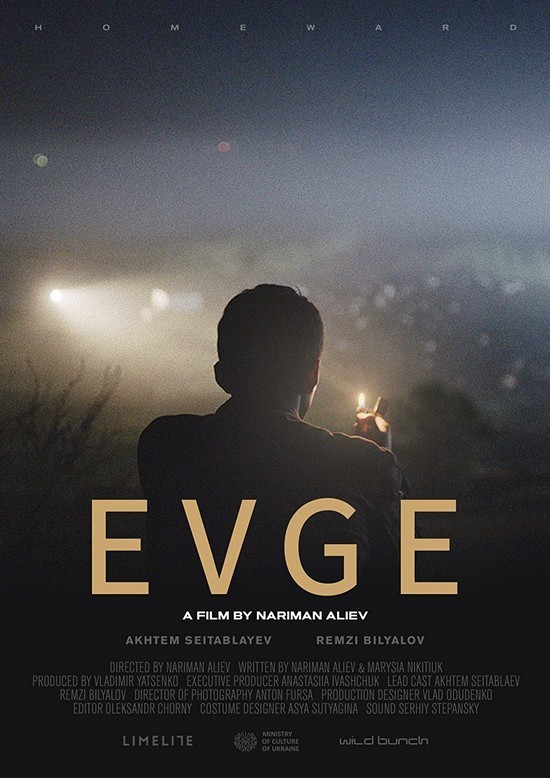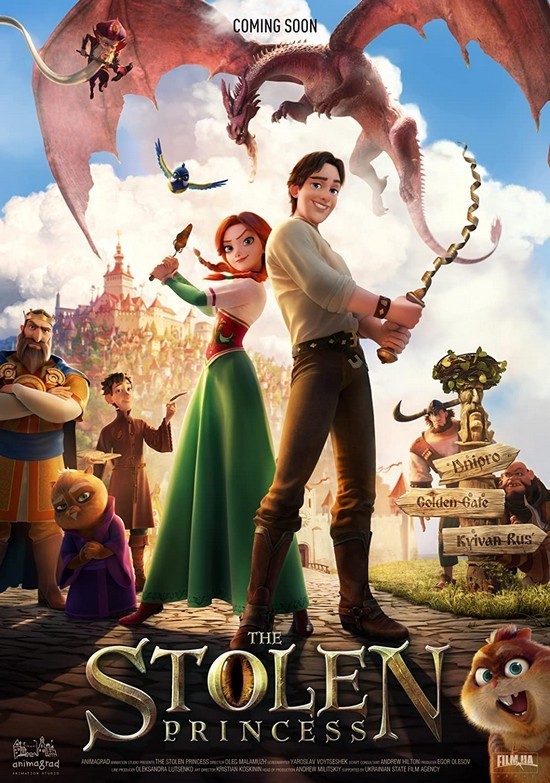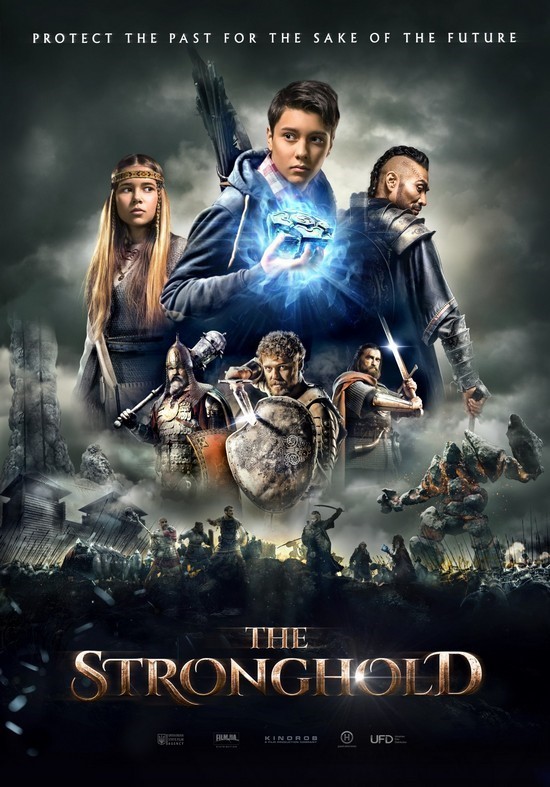Three films will be screened today, starting the Ukrainian Film Days, an
event organized by the
Royal Film Commission in cooperation with the Ukrainian
Embassy in Amman. Shown at the commission’s outdoor theater, the screenings
will provide audiences with a close look at Ukrainian cinema.
اضافة اعلان
Ukrainian cinema history
Until 2014, Russian movies dominated the Ukrainian film scene. That
changed after the outbreak of the Maidan Revolution. This protest movement
intrinsically altered Ukrainian society and government, resulting in a new
generation of directors and producers concerned with reinforcing national
sentiments.
Associations such
as the Ukrainian Contemporary Cinema Association and the Babylon 13 project
were established and documentary filmmakers took it upon themselves to promote
the values of democracy and human rights after the events of the 2014 Maidan
Revolution.
This period
resulted in creations like the 2016 film “I’m with You”, directed by Oleg Turanskiy,
which tells the story of two sports heroes who fall in love with the same girl
or the 2015 Eva Niemann’s film “Song of Songs”.
2017 saw one of
the most prominent amendments to the legislation of the country’s audiovisual
sector: 75 percent of the media content had to be in Ukrainian, to restrict the
widespread prevalence of Russian language in film and television.
Production
companies started producing
Ukrainian films in the local language. These
attempts to build identity in the film sector were hampered by several
obstacles: the country’s limited number of cinemas (one for every 200,000
people), insufficient practical expertise of directors and producers, lack of
professionalism in terms of cinematic language, and the inadequate ability to deliver
competitive works of art.
With a significantly low budget, “The Stronghold” tries to produce quality visual ... effects while incorporating Ukrainian folklore.
There have been
calls for the establishment of specialized film institutes to strengthen
technical capacities in filmmaking.

“Homeward” follows the story of a father and his youngest son as they
journey from
Kyiv to Crimea to bring back the body of their eldest son and
brother, fallen in combat.

Originally titled
“Evge”, Nariman Aliev’s film is a combination of several genres. A road movie
and a political film, it is both educational and very human, investigating the
relationship between a father and his son.
Without attempting
to make an overtly political movie, Aliev’s debut feature film offers a
personal story that inevitably reflects the troubles of history.
The film brings to
the fore
Crimean Tatars, a people relatively unknown to the public, who had to
flee after the Russian invasion. The characters are Muslims, a faith not very
widespread in this predominantly Orthodox area.
Aliev’s first film
is an extraordinary achievement that succeeds in creating meaningful dialogue
that takes place mostly in a car.
He also manages to
master staging in outdoor sequences. This is particularly evident during the
end sequence, which has beautiful natural light and is set in the vast maritime
swamp that is Crimea.
Touching performances
are given by Akhtem Seitablaev and Remzi Bilyalov, who play the father and son
respectively. The former is a man devoured by grief and weary by a life of pain
while the latter is still young, frustrated, and resisting the traditionalism
of his father.
The characters
evolve intelligently, each influencing the trajectory of the other in a sincere
and organic manner. The father-son conflict that punctuates the film creates
great cinematic moments.
In one static shot
after an accident, the characters engage in a lesson of knife fighting. The
fixity of the image makes the acting expressive and restrained.
Another scene, the
final face-to-face, closes this trip and combines light, play, and framing to
transform their relationship.
Homeward is a
beautiful film about family, and how people are never separate from history. It
explores the social, economic, and historical reality of a region; it is an
allegory of the destiny of the Tatars who are reduced to wandering.

“
The Stolen Princess” is an animated film by Oleh Malamuzh. It is based
on the popular Russian fairy tale Ruslan and Lyudmila by Aleksandr Pushkin.

Ruslan, an artist
dreaming of becoming a knight, meets beautiful Mila and falls in love with her,
unaware that she is the daughter of the king.
The lovers’
happiness is short lived. Chernomor, an evil wizard, appears in a magic vortex
and steals Mila right in front of Ruslan’s eyes to transform the power of her
love into power for his magic. Ruslan then sets off in pursuit of Princess Mila
in a quest to prove that true love is stronger than magic.

After the tragic death of his father, young Vit’ko develops an
unreasonable fear of heights. During a school outing in the forest to see a
solar eclipse, he avoids a suspension bridge and gets inexplicably sucked into
a rock, only to exit the other side and find himself in the 12th century.
Caught between clan wars of a village housed in a fortress, it seems that his
appearance is at the heart of a prophecy.
“The Stolen Princess” is an animated film ... based on the popular Russian fairy tale Ruslan and Lyudmila by Aleksandr Pushkin.
With a
significantly low budget, “The Stronghold” tries to produce quality visual,
special, and narrational effects while incorporating Ukrainian folklore.
Certainly, the narration is close to the already existing stories of young men
going back in time or projected into another world with adventures and romance.
In fact, it is
rather on the side of the geographical origin that we must look for another
element, more political. It is hard not to draw a parallel between the 12th
century invader and the current tense situation between Russia and Ukraine.
A relatively
steady pace allows watchers to fully comprehend a multitude of sub-plots that
do not weigh down the story. Costumes, the set design, and make-up are all
precise, give the impression that only a few things seem to have been left out.
The film does fall short in some regards. Women, for example, are clearly kept
aside, taking on the role of foil and romantic characters in a world of men.
The plotted romance and the war of good against evil does not deviate one iota.
Only the final, of a naive but refreshing romanticism, will be able to
astonish.

The Stronghold
offers a new imaginary and marvelous universe rather than another prefabricated
superhero. It is a salutary change of scenery, even if the film is littered
with clichés inherited from American cinema. The entire cast goes to great
lengths to make the filmed scenes to be high energy. A pleasant to see movie
with the family, and for any lover of fantasy. While it is not impactful, it
provides great entertainment.
Read more Entertainment
Jordan News



